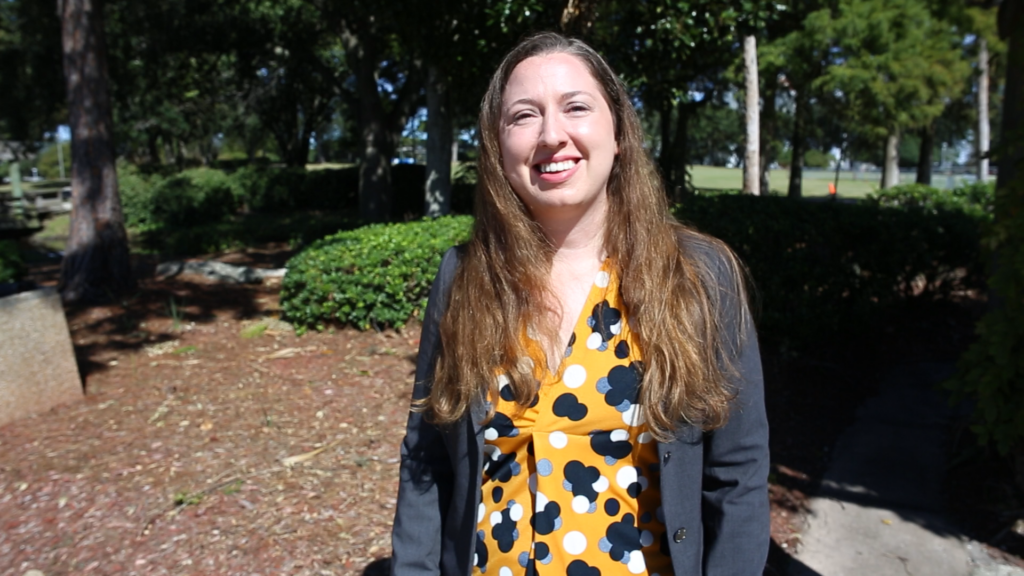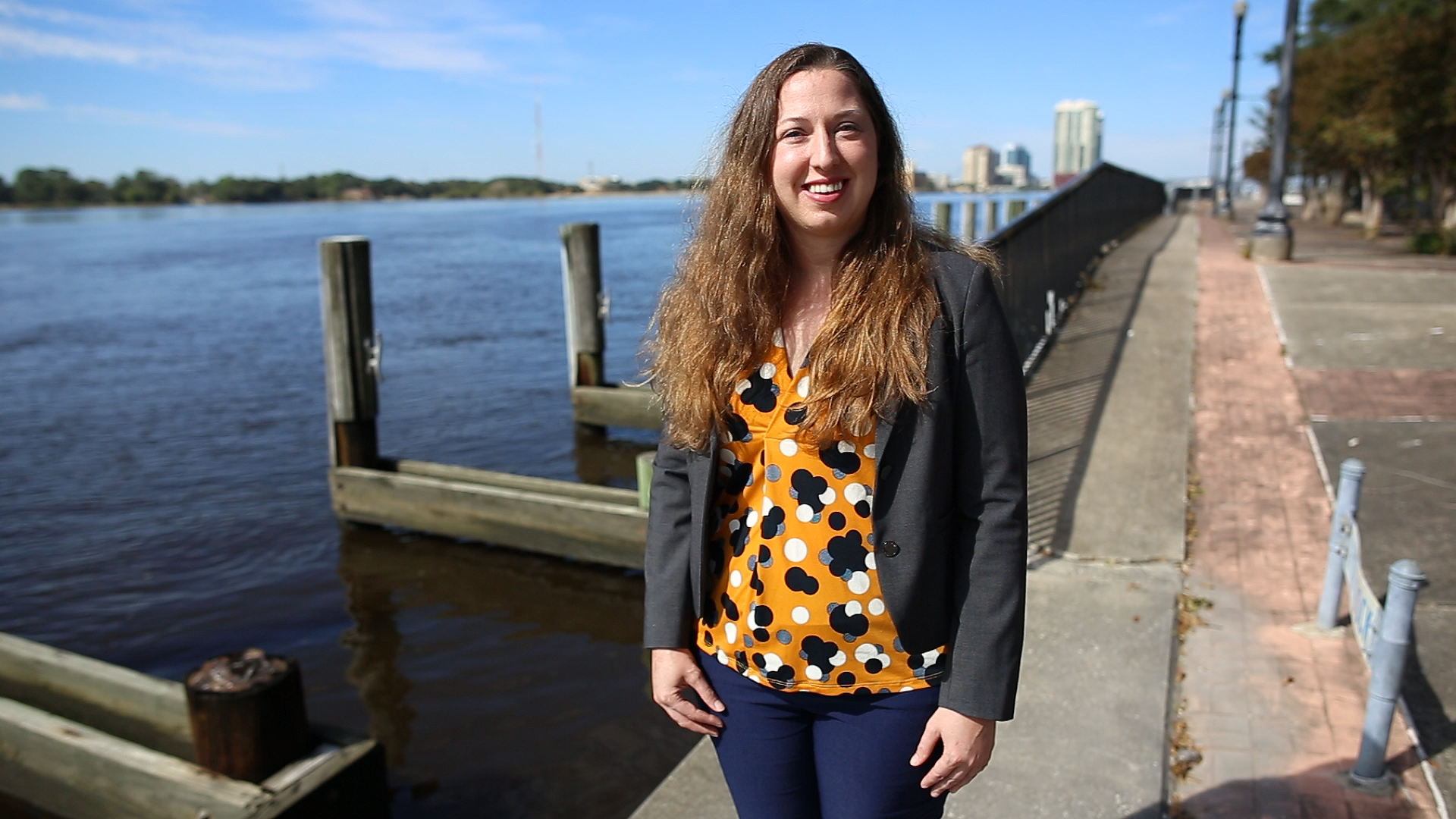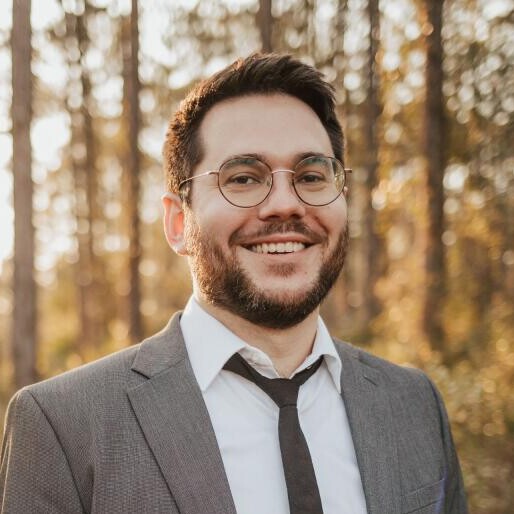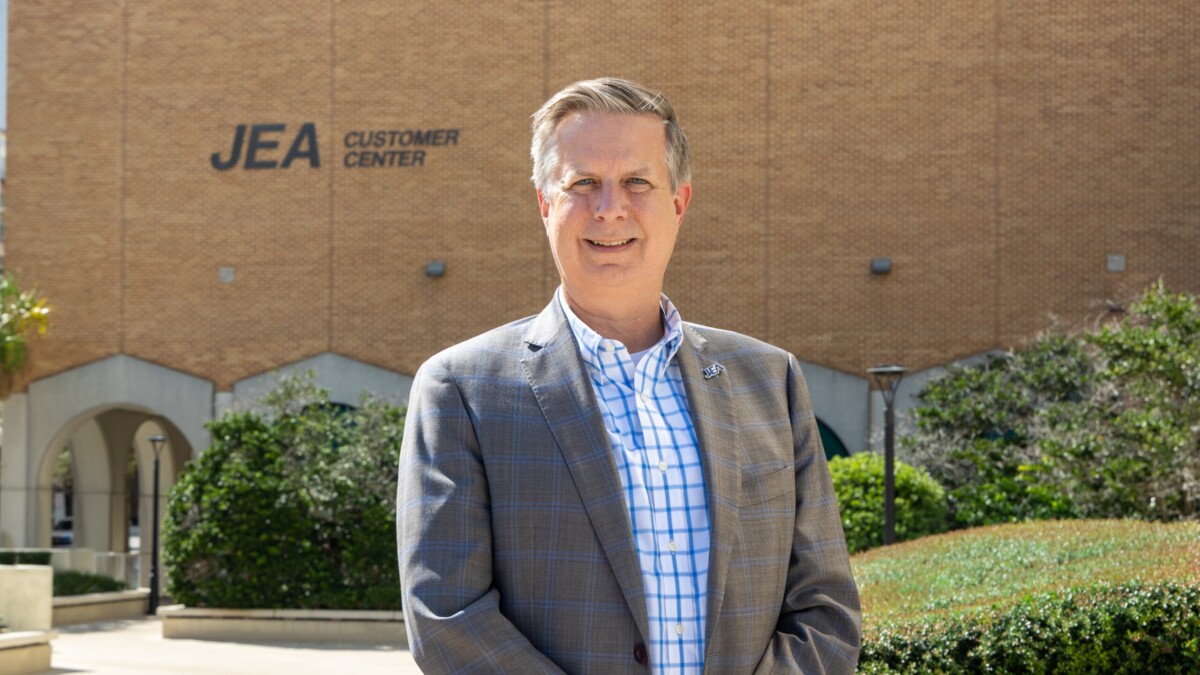The North Florida Green Chamber of Commerce recently selected Jessica Tittl as its new executive director. The organization aims to help its roughly 100 member businesses become more sustainable and environmentally friendly, improving their bottom lines along the way.
Q: You’ve been a member of the Green Chamber since 2019. Why did you join in the first place?
I was looking for other people who had the same types of ideas as I did and looking for people who had that business sense that I did but also saw the sustainability aspect of it. I thought it’d be a great place to connect with others and to find job opportunities and relationship building and all of that when I got down here. The North Florida Green Chamber of Commerce was a perfect fit for me because I’ve dedicated my career to showing that sustainable business is good business.
Q: What made you want to become the executive director?
I’m just really passionate about the Green Chamber succeeding through the future and expanding, not just in North Florida but all of Florida. Our state relies on the environment. We rely on the tourism brought in by our coasts and on our fishing industry. Everything in our state relies on a really healthy environment, and I think the Green Chamber can bring that forth and I think that is important to companies in the state as well.
Q: How did you get to where you are today?
I actually started my career in new technology product development. I worked at GOJO Industries, the makers of Purell, and I did a lot of their biomimicry tech development and a lot of their microbiome work. When I moved to Florida, I decided to go and pursue my Ph.D. and found a lab where I do microbiome research for coral reef conservation. I ended up deciding to combine my passions for conservation, science and business and actually started a company called Biome Future, where we use conservation to drive our product development of sustainable chemicals. I focused my entire Ph.D. on how you can use business to drive conservation and drive sustainability.
Q: What are some of the big takeaways from your PhD research?
The microbiome is all of the microbes that live in or on something. We have our own human microbiome – you’ve probably heard a lot about your gut microbiome and all the microbes that help break down your food and do all sorts of cool things to keep you healthy. Coral reefs have their own microbiome and they have microbes that keep them healthy and perform different functions for them. One of the big things that our lab looks at is how we can use that microbiome to keep the reefs healthy.
One of the big issues that Florida has is stony coral tissue loss disease, but we’ve found that there are certain microbes that we can add to the reef that will actually fight off the disease. So rather than having to use something like antibiotics, we can apply microbes.
Q: What does Biome Future do?
Biome Future is a nature-inspired chemical company. We are part of what’s called the Gator Hatchery at the University of Florida, which is their incubation enter where they help students start their companies. Our whole goal is to create a company that can take a conservation issue, solve that conservation issue and in doing so find products for sustainable chemistries, and then the profits from that will go back into being able to continuously solve those conservation issues. So we want to create a continuous feedback loop between conservation and product development in the chemical market.
Q: How do you think your education and experience will help you in your new role with the Green Chamber?
I’m a very interdisciplinary person; I always describe myself as a multipotentialite. I have a lot of experience in a lot of different backgrounds. Having that scientific background, I can look at things and tell you whether scientifically they are actually sustainable or if it’s just greenwashing. I have a business background: I spent a lot of time in product development and I’m able to bring that knowledge piece in and the leadership of running teams and running projects. And of course, starting my own company I have that background to help run the day to day of the company. So all of that coming together and all my different skills, I hope I can take those and help make the Green Chamber a success.
Q: What goals and aspirations do you have for the Green Chamber?
We currently have been focusing in Jacksonville and the surrounding counties, but we’ve already made a decision to expand into Alachua. I’m at the University of Florida, so it just made sense that we should go out into Alachua. But I think over time, expanding into the entire state is really where the Chamber needs to go. We need to form a really strong economic business coalition throughout all of Florida so that we can create the state that we need to have to survive and to do well in the future.
To get there, we need to really make sure that we are offering the right things to our members. So we are putting together a lot of networking and education opportunities. We want to show our members that being sustainable will help your business model. It’s not charity, it is something that will actually drive your bottom line and drive your profits.
Q: Can you give an example of how sustainable business practices can be profitable?
One example is just energy reduction. Anytime that you are able to reduce the amount of energy that you use to create your product, you’re reducing your carbon footprint and you’re saving money on the cost of that energy. When you start to think about how you’re getting the materials for your products, are you sourcing your materials from across the ocean where your carbon footprint is huge with all the transportation? Or are you sourcing it locally?
At the end of the day, it’s not just about sustainability and the environment. It’s also about people. It costs a lot to hire a new employee, to train that employee and bring them up to speed. Being a sustainable company also means that you provide the benefits to your employees that make them want to stay: you provide health care, you provide paid leave, you do all of those things that help the planet and the people as well. And in doing so you help your profits.
Q: When it comes to addressing environmental challenges, and climate change in particular, what role do you think businesses in our state should play?
Money talks. One of my favorite examples actually is the tuna industry. Tuna used to be caught with these things called purse nets, and they would catch a bunch of dolphins whenever they caught tuna. The government actually tried to put a policy in place to eliminate that type of fishing, but got so much international pushback that they actually rolled back the policy. Then an NGO went to one of the big tuna packers and said, “Hey, did you know that you guys are killing dolphins?” That tuna packer said, “Well, I’m not going to buy any tuna that’s caught that way.”
By doing that, all the others had to fall into place, because the people and the customers, they don’t want to kill dolphins so they’re going to buy your tuna over your competition. It was great marketing and also helped save the environment. So business is really powerful. Using business, we can do anything. We can really change the entire trajectory of our country and our world.
Q: Do you think our state’s business community is doing enough to address climate change?
I don’t think anyone’s doing enough to address climate change at the moment. But there are ways that we can work together. I think that we should look at what we’re doing and be honest with ourselves about every decision that we make because you’re never going to be perfect. Even the most sustainable company is not a fully sustainable company. We’re not there yet, and that’s okay. What matters is that we keep working and keep trying to get better and one day, hopefully, we’ll get to the point where we have a perfect circular economy and we are beneficial to the earth.

Q: As the business community tries to move in that direction, what role does the Green Chamber play?
The green chamber is here to connect businesses with others so they can learn from each other and also to provide the materials, the training and the guidance to help bring sustainability into their business model. Just like any other chamber helps to connect companies, we help connect companies that have the goal in mind of being sustainable. And I say that as the “goal in mind” because it’s not about just connecting companies that are already sustainable. It’s about helping people and companies that want to add that into their business model and don’t really know where to start.
Q: How can business owners or entrepreneurs get involved with the Green Chamber?
They can go to our website and join the Chamber or they can send an email to me and I can talk to them more about some of the things that we do. But being a member is the best way to get involved.
Q: What about company employees? How can they get involved?
We do have a membership for regular people as well, and I would love to see more people, not just the business leaders, coming in and joining the Green Chamber because I think that employees do drive a lot of what their company and the leaders of their company do.
As an employee, you do have a good amount of power. You can set the trajectory of your company just by learning to garner support for the cause. I’d love to see individuals join and the more people that you bring from your company, the more your leadership is probably going to take notice that their employees care about these issues and think that they’re things that should be brought in.
Q: And the rest of us?
You vote with your dollars. We do such a big push every time elections come around to say, “Go out and vote.” But every day that you go to the store and you make a purchase decision, you’re voting. So if you really feel passionately about sustainability, you should be considering that when you go to the store and when you hire people.
Going onto our website — we call it the Green Marketplace — you can look at all the people and all the companies that are involved in the Green Chamber, and that can help you choose the best person in the area that you want to work with. And that goes across everything you buy, being conscientious about where your products come from, and not just a lower price point but what that product’s impact on the environment and people really is.








